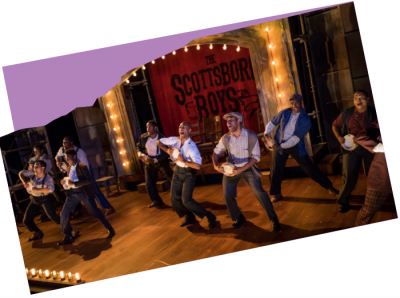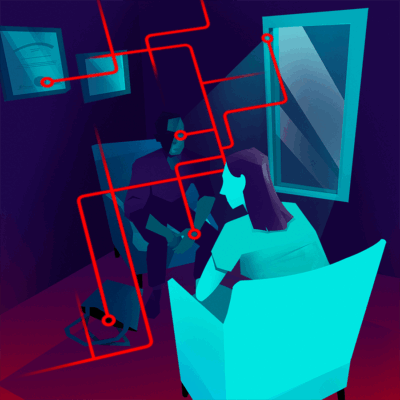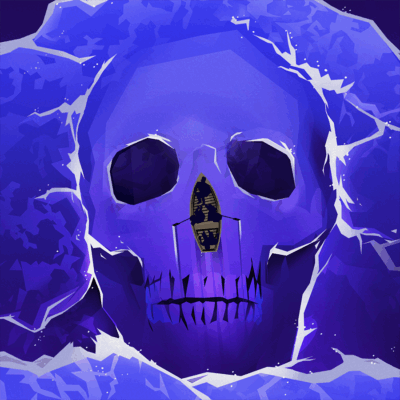Your donation sets the stage for a new season of Boston's most intimate, entertaining and provocative plays and musicals. Our shows make powerful connections with our audiences-- and they are only possible because of you.
Interview with Alex Timbers
Interview with Alex Timbers
Interview with Alex Timbers

Timbers is keeping busy as a director. Here Lies Love, a new musical about Imelda Marcos with music by David Byrne and Fatboy Slim, is having its world premiere at NY’s Public Theater in April. And when we exchanged emails a few weeks ago, Timbers was in Hamburg, Germany, immersed in technical rehearsals for Rocky, the musical version of the Oscar-winning movie with a score by Lynn Ahrens & Stephen Flaherty and book by Thomas Meehan, now having its world premiere at the Operettenhaus.
Why was it so important to start a theatre company when you moved to NY after college?
As a young director, it’s rare to be handed jobs; and so I felt I needed to create my own opportunities. To stand apart from the many other companies in New York, I wanted to have a very specific mission and “house style.” I had collaborated on a comedic avant-garde dance piece in college that explored the history of higher mathematics in a funny deadpan style. The Les Freres Corbusier aesthetic and mission were born from that: lampooning academia while celebrating it, poking fun at experimental theatre tropes while reveling in them.
What and/or who contributed to the forming of your particular theatre sensibility?
Les Freres Corbusier is indebted to the work of Elevator Repair Service, the Wooster Group, Target Margin Theater, and others.
How did you and composer Michael Friedman get to know each other, and what made you decide to collaborate on a project?
We were set up on a “creative blind date” by a record producer named Kurt Deutsch. Usually nothing comes of those sorts of meetings, but that day we hit on a project idea very quickly. I was really interested in exploring emo onstage as a performance style, and he knew of my interest in historical figures and was fascinated with Andrew Jackson. He had taken a class on Jackson as an undergrad at Harvard. The question arose: Isn’t Andrew Jackson the ultimate emo president?
What did the script for Bloody Bloody look like when you first workshopped it at Williamstown in the summer of 2006 and again in NYC the following May? Were the workshops more about creating the piece or refining it?
We originally conceived of the show as a play with music. At Williamstown, we had only about six songs. Over the years that followed, the show’s form seemed to want to become closer to that of a musical.
How did your relationship to the material shift once you moved from writing into production, or when you had to put on your “directing hat”?
It’s complicated to write and direct a show. The benefits of that combination arrive at the point that you no longer become precious about the material. If a scene wasn’t working, I didn’t have to ask a bookwriter for rewrites. I’d just do that on the spot, or cut or solicit better jokes from the cast. Keeping the writing process loose and organic was helpful to us. And you can feel that energy when watching the show.
Was there a moment in the development process that stands out as a turning point in the show’s evolution when the context or the approach really shifted?
After our production in Los Angeles, we made a major realization about the tone of the show. Going into that production, we had made certain choices to sentimentalize Andrew Jackson and increase his likability, in the interest of making the show more widely relatable and emotional. We realized though, that it was at odds with the character we’d written and the audience’s relationship to him, both within the show and from a larger historical perspective. After Los Angeles, we entirely rewrote the final third and re-focused on the more experimental, satirical, and “downtown” instincts that initially drove the project.
Much of the story of this show is its movement from smaller, scrappier spaces into a Broadway setting. Did the script and score change with the venues, or was it more a matter of scaling the production?
Once we did our first production in New York (the first of three, including Broadway), the script didn’t go through major rewrites as we went from a 99-seat theater to a 299-seat theater to Broadway. The scenery on stage didn’t change much either. It was the immersive scenic and lighting treatment we made to the interior of the theaters that really increased in scope.
As you and Michael were developing Bloody Bloody Andrew Jackson, we transitioned from the Bush years to Obama’s first term and now we’re in yet another election cycle. Did you find that the political climate of any given time contributes to the edginess of Bloody Bloody?
We worried that, as new administrations came and went, the show might become less timely. But we found that Andrew Jackson’s character and his relationship to the people kept being reflected and refracted in new and interesting ways. I think that’s less a tribute to the writing than to the fact that all modern-day politicians (as well as the notion of actively campaigning for office) to a certain extent, come from Andrew Jackson’s rib.
—Suzanne Bixby
 Past Productions
Past Productions Primary Trust
Primary Trust Lizard Boy: A NEW MUSICAL
Lizard Boy: A NEW MUSICAL JOB
JOB The Antiquities
The Antiquities Swept Away
Swept Away




